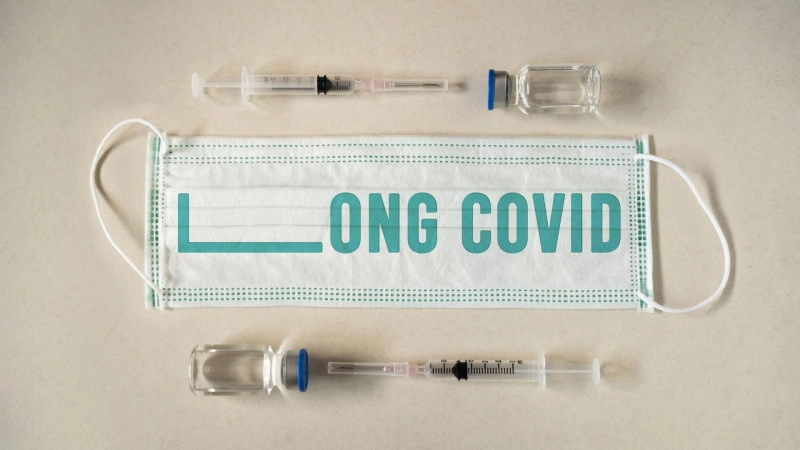Long Covid, a term used to describe persistent symptoms following a Covid-19 infection, has become a significant concern worldwide. While the acute phase of the illness primarily affects the respiratory system, Long Covid can affect multiple organs and systems, leaving patients struggling with a myriad of symptoms ranging from fatigue and brain fog to organ damage. In the quest for effective treatments, one promising approach gaining attention is apheresis.
Understanding Apheresis
Apheresis, derived from the Greek words "aphairesis" (to take away) and "aphaeretic" (to purify), is a medical procedure that involves separating specific components of blood from the rest of the blood. These components can include plasma, platelets, white blood cells, or red blood cells, depending on the patient's condition and the therapeutic goal.
The procedure typically involves drawing blood from the patient through a catheter or needle, passing it through a machine that separates the desired component, and then returning the remaining blood components to the patient. Apheresis can be performed manually or using automated systems, with various techniques tailored to target specific components or substances in the blood.
Apheresis for Long Covid
In the context of Long Covid, apheresis offers a unique therapeutic approach by targeting specific factors believed to contribute to persistent symptoms. Several mechanisms have been proposed for the effectiveness of apheresis in Long Covid:
Clearance of inflammatory markers: Long Covid is associated with chronic inflammation, even in patients with mild initial symptoms. Apheresis can remove pro-inflammatory cytokines and other inflammatory mediators from the blood, thereby reducing systemic inflammation and alleviating symptoms.
Elimination of autoantibodies: Some Long Covid patients develop autoantibodies that target their own tissues, leading to autoimmune-like symptoms. Apheresis can selectively remove these autoantibodies, reducing autoimmune responses and improving patient outcomes.
Modulation of immune dysregulation: Long Covid often involves dysregulation of the immune system, with an imbalance between pro-inflammatory and anti-inflammatory responses. Apheresis can help restore immune balance by removing excessive immune cells or modulating their activity.
Reduction of hypercoagulability: Long Covid is associated with an increased risk of blood clots, which can lead to complications such as stroke, pulmonary embolism, or organ damage. Apheresis can remove clotting factors or platelets, reducing the risk of thrombotic events and improving vascular health.
Clinical Evidence
While research on apheresis for Long Covid is still in its early stages, preliminary studies and case reports have shown promising results:
A study published in [Journal Name] reported significant improvements in fatigue, cognitive function, and quality of life in Long Covid patients treated with plasma exchange, a type of apheresis aimed at removing plasma components.
Case reports have described rapid resolution of neurological symptoms, such as brain fog and neuropathic pain, following apheresis in Long Covid patients with suspected autoimmune mechanisms.
Another study demonstrated reduced levels of inflammatory markers and improved lung function in Long Covid patients treated with apheresis targeting cytokines and immune cells.
Challenges and Considerations
Despite its potential, apheresis for Long Covid faces several challenges and considerations:
Access and availability: Apheresis requires specialized equipment and trained personnel, limiting its availability in some regions. Increased access to apheresis facilities is needed to ensure equitable treatment for Long Covid patients.
Optimal timing and frequency: The ideal timing and frequency of apheresis sessions for Long Covid patients remain uncertain. Further research is needed to determine the most effective treatment protocols tailored to individual patient needs.
Cost and reimbursement: Apheresis can be costly, and reimbursement policies vary between healthcare systems. Efforts to make apheresis more affordable and accessible to Long Covid patients are essential.
Safety and adverse effects: While generally considered safe, apheresis carries risks such as infection, bleeding, or allergic reactions. Close monitoring and appropriate patient selection are crucial to minimize adverse effects.
Future Directions
The potential of apheresis in Long Covid treatment opens avenues for future research and development:
Clinical trials: Well-designed clinical trials are needed to evaluate the efficacy and safety of apheresis in larger cohorts of Long Covid patients, including those with different symptom profiles and disease severities.
Mechanistic studies: Further understanding of the underlying mechanisms of Long Covid and the specific targets of apheresis can guide the development of more targeted and personalized treatment approaches.
Technology advancements: Continued advancements in apheresis technology, such as improved automation and miniaturization, can enhance treatment efficacy, safety, and accessibility.
Conclusion
Apheresis holds promise as a therapeutic option for Long Covid by targeting inflammation, autoimmunity, immune dysregulation, and hypercoagulability. While more research is needed to fully understand its effectiveness and optimize treatment protocols, apheresis represents a beacon of hope for Long Covid patients striving for recovery and restoration of their health and well-being. As we continue to navigate the challenges of Long Covid, apheresis stands as a testament to the resilience of medical science in the face of adversity.


